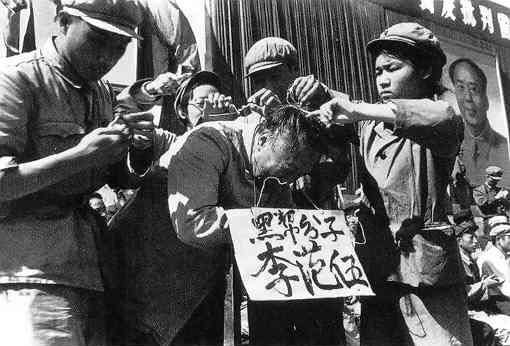
The bourgeoisie, Mao warned the people of China, had snuck into the Communist party. On May 16, 1966, Mao Zedong released what would come to be known as the May 16 Notification, and it was on that day that the Cultural Revolution began. In an attempt to again garner support, Mao called for a great reformation that would oust those who doubted him from power and reinstate his reign. As such, Mao's power in his party and in his country was greatly weakened. The campaign was known as the Great Leap Forward, and it was a great failure. The Cultural Revolution Beginsįrom 1958 to 1962, Mao launched an economic campaign through which he hoped to turn China away from an agrarian-based society and into a more modern, industrial one. 23 Middle School wave the Little Red Book of the Quotations of Chairman Mao in a classroom revolution rally. Such was the time of the Cultural Revolution in China - and it was one of the strangest and most dangerous times to be alive there. Without Chairman Mao, we would have nothing."

Everything I had been taught told me that Chairman Mao was closer to us than our mums and dads. "Even though it might be dangerous, that was absolutely what we had to do.

"We all shared the belief that we would die to protect Chairman Mao," 64-year-old Yu Xiangzhen recalled to the Guardian. They waged a war against what they believed was the creeping presence of the bourgeoisie - all in the name of Mao.
#STRUGGLE SESSION CHINA FREE#
The youths went into ancient temples and smashed sacred relics in order to bring China into a new age free of old ideas. Young people in military uniforms and red armbands dragged their teachers and their neighbors into the streets and publicly beat and humiliated them in an attempt to eradicate the country of traitors to the party.

Under the guise of purging the Communist party of bourgeois attitudes and complacency, Chairman Mao Zedong mobilized the youth to reassert his power in China. In the decade between 19, China was in the throes of a passionate cultural upheaval. "The Cultural Revolution," the Chinese Communist party wrote just five years after Communist leader Mao Zedong's reign had ended, "was responsible for the most severe setback and the heaviest losses suffered by the party, the state and the people since the founding of the People's Republic."


 0 kommentar(er)
0 kommentar(er)
